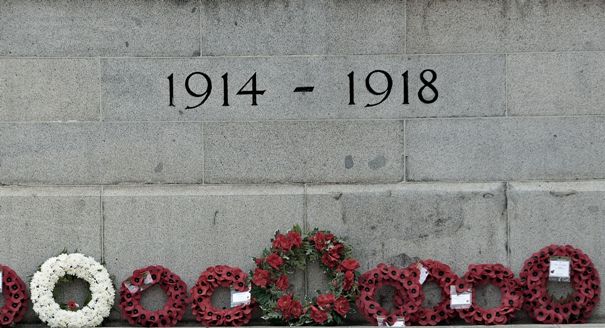President Vladimir Putin has formally rehabilitated Russia's "forgotten war." This is particularly important for a country where few World War I graves have survived, and no monuments to its heroes and victims have ever been erected. Now, at least, there is one on Poklonnaya Hill, which also hosts the triumphal arch dating back to the Patriotic War of 1812, to repel Napoleon's invasion, and a museum devoted to the Great Patriotic War of 1941-1945, against the Nazis. The "imperialist war" of 1914-1918, reviled by the Bolsheviks, but also used by them to destroy the old Russian state, is now reinstalled as part of Russia's military glory, with its generals and soldiers made part of the nation's pantheon.
- In 1914, Russia was drawn into the war after its attempts at facilitating a negotiated solution to the crisis between Serbia and Austria-Hungary had failed. In the end, Russia had to become involved to protect its honor and security.
- Victory in World War I was stolen from Russia by those who called for the defeat of their own fatherland and its army, were sowing discord within the country, in their thirst for power and in betrayal of the national interest.
- Outsize ambitions of states and egoism of their elites lead to aggression, violation of others' interests, and render one deaf to others' arguments, and to common sense. Yet, violence can only breed violence. Peace and prosperity can solely be reached through good will and dialogue. Even then, peace is brittle.
With hindsight, it is clear that going to war in 1914 was suicidal for the Russian state. Reformist Prime Minister Petr Stolypin's famous plea for "twenty years of quiet" to transform Russia applied equally to avoiding domestic and foreign conflicts. Today, whatever happens in Donbass, a Russian military invasion of Ukraine might well lead to a catastrophe reminiscent of Afghanistan, with dire consequences for Russia itself, or to an all-out conflict between Russia and NATO.
During World War I, only the far-left Bolsheviks came out as proponents of national defeat, which they worked hard to turn into a social revolution. They would have never succeeded, had the Romanov monarchy, on one hand, and Russia's liberal, conservative and socialist parties, on the other, found a way to cooperate on the basis of the shared national interest. Today, national unity in Russia is as essential as ever, and it can be obtained on the basis of clean and accountable government; independent and efficient courts; and national solidarity.
Finally, Russia's real ambitions today lie at home, particularly in the fields of economics, demographics, and nation-building. The Ukraine crisis is a powerful jolt, which, in principle, could set in motion new forward-looking policies across the board. As to Ukraine itself, it will need to go through its own trials. Russia will never lose interest in Ukraine, but that very interest commands that Russia treat it as a neighboring country, not a potential part of Russia itself, or a Moscow-led union. There is only one Crimea. Gathering people, rather than lands, is a surer path toward self-empowerment.





